|
|
 |
• Содержание выпуска •
• Supercomputing Software and Hardware •
• Artificial Intelligence, Intelligence Systems, Neural Networks •
• Information Systems in Culture and Education •
• Methods for Optimal Control and Control Theory •
• Mathematical Foundations of Programming •
• Software and Hardware for Distributed Systems and Supercomputers •
Methods for Optimal Control and Control Theory
Responsible for the Section:
doctor of physico-mathematical Sciences Yury Sachkov.
On the left: assigned number of the paper, submission date, the number
of A5 pages contained in the paper,
and the reference to the full-text PDF
/r1/pdf.jpg) . .
|
Article # 29_2017
37 p.
/r1/pdf.jpg) PDF
PDF |
submitted on 25th
Oct 2017 displayed on
website on
20th
Nov
2017 Aleksander
Stolbov
Software for
complex studies of social-ecological and economic systems based on
Region models: an analytical review
The article presents a historical overview and
current state in the development of software that supports the
research of social ecological and economic systems based on the
“Region” models. The review covers development from the mid-1970s to
the present.
The analysis of publications, reports and, where it was possible,
documentation was carried out. The architecture of software systems,
their main features and implementation methods were considered and
analyzed. To represent some aspects of software, UML diagrams are
exploited. The main purposes of considered software systems are the
following: calculation experiment and scenario analysis, solving
optimization and normalization problems, analyzing model properties
and identifying parameters. The classification and comparison of
software were carried out, then conclusions are drawn and future
works delineated. (In Russian).
Key words:
software, social ecological economical systems,
analytical review. |
|
article citation |
http://psta.psiras.ru/read/psta2017_4_47-83.pdf |
|
DOI |
https://doi.org/10.25209/2079-3316-2017-8-4-47-83 |
|
Article # 32_2017
15 p.
/r1/pdf.jpg) PDF
PDF |
submitted on 11th
Dec 2017 displayed on
website on
25th
Dec
2017 Irina Rasina,
Oles Fesko, Aleksandr Blinov
Affine operator networks
In this paper, we consider affine operator networks
as a special case of two-level model of networks described by
ordinary differential systems. For this kind of networks an optimal
control problem is formulated. Sufficient optimality conditions are
given. The efficiency is demonstrated through an example. (In
Russian).
Key words: operator networks, two-level
systems, optimal control. |
|
article citation |
http://psta.psiras.ru/read/psta2017_4_117-131.pdf |
|
DOI |
https://doi.org/10.25209/2079-3316-2017-8-4-117-131 |
|
Article # 34_2017
14 p.
/r1/pdf.jpg) PDF
PDF |
submitted on 04th
Dec 2017 displayed on
website on
25th
Dec
2017 V. Markasheva,
A. Mashtakov
Existence of Global Fundamental Solution to a Class of Fokker–Planck
Equations
In this paper, we investigate global solvability of
the Fokker–Planck equations of a special type. Such equations arise
in models of the primary visual cortex of the human brain and
describe a process of anisotropic blurring of the image of the
visual field on the retina of the eye. By modifying the Folland
lifting technique for linear hypoelliptic differential operators
satisfying the Hormander condition, we propose a method to saturate
the system of vector fields in the equation to a basis of the
tangent space at every point. We present the conditions that
guarantee existence of a global fundamental solution to the
considered equations.
Key words: nilpotent and stratified Lie
groups, lifting of operator, saturation, fundamental solution. |
|
article citation |
http://psta.psiras.ru/read/psta2017_4_149-162.pdf |
|
DOI |
https://doi.org/10.25209/2079-3316-2017-8-4-149-162 |
|
Article # 35_2017
16 p.
/r1/pdf.jpg) PDF
PDF |
submitted on 11th
Dec 2017 displayed on
website on
25th
Dec
2017 Andrei Ardentov,
Alexander Smirnov
Controlling a
mobile robot along Euler’s elasticae
In this paper, we consider the problem of controlling
a wheeled robot on a flat surface without obstacles. Arduino
platform is a basis of the robot. We investigate the class of
optimal controls that first appeared in the classical Euler’s
elastic problem. Finally, we present several examples of movement of
the robot along Euler’s elasticae and study the problem of
trajectory avoidance from elasticae and possible ways to solve it.
(In Russian)
Key words: mobile robot, kinematics, Euler’s
elastica, Arduino. |
|
article citation |
http://psta.psiras.ru/read/psta2017_4_163-178.pdf |
|
DOI |
https://doi.org/10.25209/2079-3316-2017-8-4-163-178 |
|
Article # 37_2017
17 p.
/r1/pdf.jpg) PDF
PDF |
submitted on 04th
Dec 2017 displayed on
website on
28th
Dec
2017 Elena Sachkova
Nondegenerate
abnormal control in sub-riemannian problem with growth vector (2, 3,
5, 8)
Nilpotent sub-Riemannian problem with growth vector
(2, 3, 5, 8) are considered. Canonical abnormal controls are
described. Formulas for the corresponding conjugate vectors of the
Pontryagin maximum principle are obtained. (In Russian).
Key words:
sub-Riemannian problem, abnormal controls, abnormal
trajectories. |
|
article citation |
http://psta.psiras.ru/read/psta2017_4_179-195.pdf |
|
DOI |
https://doi.org/10.25209/2079-3316-2017-8-4-179-195 |
• Supercomputing Software and Hardware •
• Artificial Intelligence, Intelligence Systems, Neural Networks •
• Information Systems in Culture and Education •
• Methods for Optimal Control and Control Theory •
• Mathematical Foundations of Programming •
• Software and Hardware for Distributed Systems and Supercomputers •
|


